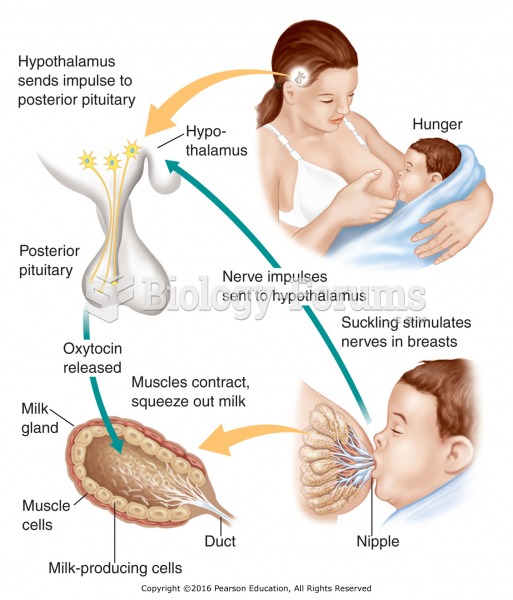|
|
|
About 3% of all pregnant women will give birth to twins, which is an increase in rate of nearly 60% since the early 1980s.
There are over 65,000 known species of protozoa. About 10,000 species are parasitic.
An identified risk factor for osteoporosis is the intake of excessive amounts of vitamin A. Dietary intake of approximately double the recommended daily amount of vitamin A, by women, has been shown to reduce bone mineral density and increase the chances for hip fractures compared with women who consumed the recommended daily amount (or less) of vitamin A.
The heart is located in the center of the chest, with part of it tipped slightly so that it taps against the left side of the chest.
The most common treatment options for addiction include psychotherapy, support groups, and individual counseling.







